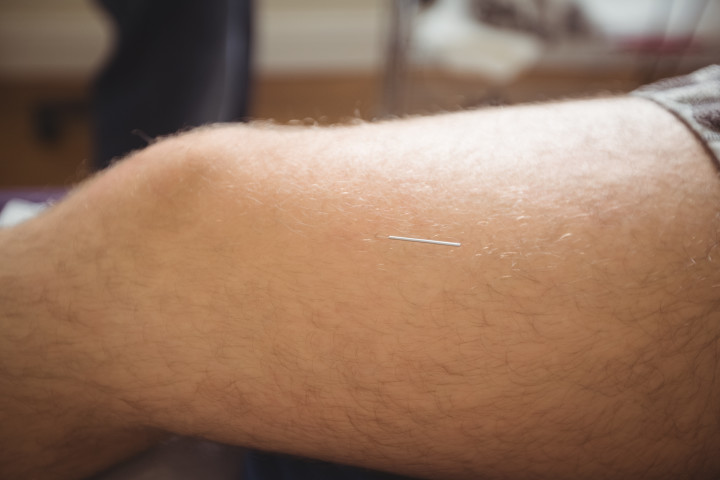What’s the Difference Between Counselor and Psychologist? What About MSW, LPC, More?

Many who are considering mental health treatment wonder about the letters behind people’s names. They can be a bit confusing and even intimidating. There are many different job titles, licenses, and jargon in the mental health and addiction treatment spaces. And different states have different names and regulations for essentially the same roles. This can add to the confusion, but we’re here to break it down for you. The Difference Between Counselor and Psychologist There are a few major roles that are important to understand right off the bat. Counselor and psychologist are two of them. A counselor and a psychologist perform two different job functions, meaning they do different things for their clients. A counselor has a master’s degree in either counseling, social work, or psychology. They perform individual, group, and family therapy. Techniques they may use are cognitive behavioral therapy, EMDR (eye movement desensitization and reprocessing), biopsychosocial assessments, and many more. They specialize in treating a wide variety of mental health conditions and addictions. A psychologist tends to do more assessments. They hold a doctoral degree in psychology. This means they have extensive knowledge of the scientific research underlying mental health disorders. They often perform comprehensive psychological evaluations. These differ from the biopsychosocial assessments that counselors do. Psychological evaluations usually include several tests, like IQ tests, ADHD assessments, record collection, and interviews. Psychologists often perform therapy as well. Finally, it’s important not to get either of these titles confused with psychiatrists. Psychiatrists focus primarily on medication. They have the same level of education and training as doctors and nurse practitioners, but they specialize in how brain chemistry produces mental illness and/or addiction. They may perform assessments and diagnose people as well. Their role then shifts to medication management rather than counseling. What Do All These Licenses Mean? PhD – Clinical Psychologist A clinical psychologist holds a PhD in clinical or counseling psychology. A clinical psychologist can administer psychological and personality tests. They can also diagnose mental illness and provide therapy. In some cases (dependent on their state and their training), they may prescribe medication. You might have heard that PhD programs are only for people who do research, but this is not usually the case. PhD programs in clinical psychology vary in focus. They will always provide extensive training in psychotherapy. If you’re referred for a psychological evaluation, you’ll likely see a clinical psychologist. There’s a good chance you’ll see one for therapy as well. PsyD – Clinical Psychologist A provider who holds a PsyD in psychology is almost identical to the above PhD. Like a PhD, the Doctor of Psychology degree (PsyD) prepares people to practice psychology in many clinical settings. They may provide therapy as well. But someone with a PsyD focuses more on clinical practice and less on research. A PsyD will perform the same services for clients as someone with a PhD. MSW – Clinical Social Worker A provider who holds an MSW (Master of Social Work degree) can provide mental health services. They include psychotherapy, diagnosing mental health conditions, and performing biopsychosocial assessments. Clinical social workers are not trained to administer psychological and personality tests. Social workers have skills and theories to challenge social injustice and change systems of care. The Master of Social Work offers coursework in: Clinical practice Social administration Public policy Research Ethics An MSW degree can lead to many different career paths in the public health and medical fields. There are different levels to the social work licensure process. Somebody who has obtained the highest level of license usually has the acronyms “LCSW” after their name. This stands for “licensed clinical social worker.” An MSW may perform any number of services for you, like: Counseling Case management Community organizing If the provider you’re seeing has any acronyms with a “C” for “clinical,” this indicates they most likely practice in behavioral health. Other non-clinical MSWs often don’t get extra licensure. MA/MS Counseling – Licensed Professional Counselor A provider who holds a master’s degree in counseling can provide many mental health services. These include psychotherapy, diagnosing mental health disorders, and performing biopsychosocial assessments. A master’s in counseling prepares an individual for a variety of counseling options, like: Marriage and family therapy Rehabilitation counseling Vocational counseling Mental health counseling Students in Master’s in Counseling degree programs study counseling theories and techniques. They may also study psychological testing, ethics, research, cultural perspectives, and psychological development. There are different levels to the professional counselor license process. Somebody who has obtained the highest level of license to practice will usually have the acronyms “LCPC” after their name. This stands for “licensed clinical professional counselor.” An LPC can do everything an MSW can do within behavioral health. They may have extra training in a wider variety of counseling approaches. They may also have deeper knowledge of histories and theories. Unlike MSWs, they don’t have training in systemic injustice and community organization. MA/MS – Clinical Counseling Psychology A professional counselor is a provider who holds a master’s in clinical psychology. In some states, they can do the same as a clinical psychologist can. In most states, they perform the same functions as the other master’s-level clinicians. They will have the “Licensed Clinical Professional Counselor” title. MFT – Marriage and Family Therapist A provider who holds a master’s in marriage and family counseling can do the same things as the other master’s-level clinicians listed above. There are a lot of similarities between this role and clinical counselors—so many, in fact, that the Bureau of Labor Statistics groups the two together. However, an MFT places a focus on treating couples and families. Marriage and family therapists can work with individuals as well. MD or APRN – Psychiatrist A psychiatrist is a medical doctor who completed medical school. They are trained to diagnose mental health disorders and prescribe medication. Psychiatrists usually focus on prescribing psychiatric medication. In rare cases, they may perform therapy as well. Psychiatrists can also be APRNs, or “advanced practice registered nurses.” These professionals need to
Using Expressive and Experiential Therapy to Heal in Addiction Treatment

More than 23 million Americans suffer from addiction to drugs or alcohol. Unfortunately, 75% of them report not receiving any form of treatment for their addiction. If you do choose to get help, picking the right treatment can feel overwhelming because of the many different options. In the world of addiction treatment, talk therapy is the most well-known approach, but it’s not the right fit for everyone. Talk therapy can be scary, especially when you’re expected to discuss past trauma and difficult emotions. You might find it hard to describe your experiences, or you may not be ready to talk about them yet. Recently, other therapy approaches have gained the spotlight, including expressive and experiential therapies. These therapies focus on engaging in specific activities and experiences. They go beyond traditional talk therapy and provide unique ways of healing. Experiential and Expressive Therapy for Addiction Imagine addiction as an iceberg: The part above the water—that you can see—is just the symptom of something deeper. It shows only part of what is going on. The unseen part of the iceberg represents the trauma or pain that is driving the addiction. Therapy that addresses only the tip of the iceberg isn’t effective, and it means a higher chance of relapse. Experiential and expressive therapies provide a way to see what is below the surface. By exploring and resolving root causes, the chances for recovery are much better. Until past traumas heal, people tend to continue old behaviors. While all effective therapy should address the root cause(s) of addiction, experiential and expressive therapies provide unique alternatives to traditional therapy. They can also be used in conjunction with other therapies. Beyond healing past traumas, experiential and expressive therapies can help you: What Is Experiential Therapy? Experiential therapy grew out of experiential learning theory and comes in many forms, but it’s main goal is to help people heal through doing. It uses different activities and experiences as ways to engage in the addiction recovery process. Experiential therapy is often used alongside traditional talk therapy. Here are a few common examples of experiential therapy: Adventure therapy uses recreational activities, like hiking, backpacking, or rock-climbing, to aid in recovery. The thought of doing these things may feel uncomfortable, or even scary, but working through these hard activities can improve your problem-solving skills. Adventure therapy also supports trust-building and teamwork. Martial arts, like Jiu jitsu, are becoming more popular in treating addiction. They promote personal discipline and focus on the present moment and can also help establish a sense of personal control. This is helpful because as someone addicted to a substance, you may have felt out of control for a long time. Volunteering – Studies show volunteering helps in recovery from mental health problems and addiction. Addiction can cause people to focus inward—only on themselves. Volunteering is a way to shift the focus to others. People who volunteer report increased empathy and compassion. It can also provide community and connection. There are many ways to volunteer. You could: What Is Expressive Therapy? Expressive therapy combines psychology with different creative outlets. This therapy comes from the belief that everyone can express themselves through creativity. It encourages healing and growth in a non-traditional way. Because everyone expresses themselves differently, this is a very flexible therapy. Here are a few common examples of expressive therapy: Art therapy is about creative expression using various types of art, such as: Creating art is a way to promote: In addiction treatment, art therapy helps people express emotions without having to come up with words to talk about them. Art therapy also increases emotional understanding and confidence. Dance therapy comes from the idea of the mind-body connection. It uses movement to support all parts of you: emotional, physical, and mental. The purpose of dance therapy is more than exercise; movement expresses emotion and allows you to connect with your body. Bibliotherapy uses the written word to help the healing process. You may read specific books recommended by your therapist, compose poems, and/or write or tell stories. Bibliotherapy provides a unique space for expressing your feelings and emotions, and it can help you work through past hurts and tap into a creative side you may have been missing. Music can increase positive feelings in your body and your mind, and while music therapy can just involve listening to music, it’s also diverse! You could create music yourself by playing an instrument or writing song lyrics, or you could sing. Music therapy might also combine another activity (such as journaling) with the music process. Drama therapy is one of the most engaging therapies. It uses role-playing and other theater practices (like improvisation, projection, and metaphor) to help you share your stories. It can also help with expressing feelings and strengthening relationships. Drama therapy allows you to take on other “roles.” For many people, it can feel “safer” to convey their thoughts and feelings as someone else. Drama therapy also creates the opportunity to re-enact difficult experiences from the past, which can be healing. This expressive therapy can be done by yourself, as part of a couple, or with family members or other groups. If you’re interested in learning more about experiential and expressive therapy to help you work through your addiction and live a sober, happy life, contact Footprints to Recovery today. References
Adventure Therapy as Addiction Treatment

Adventure is defined by the dictionary as “an unusual, exciting, or dangerous experience, journey, or series of events.” Adventure therapy is a mental health discipline that uses the natural environment to help you cope with and overcome behavioral, cognitive, social, and affective disorders. You could say recovering from addiction is an adventure—full of unknowns that can be both scary and exciting. Most adventure therapy activities are outdoors, but some may also be indoors. Regardless of location, adventure therapy activities have one thing in common: an element of perceived or actual risk. To confront and overcome risk, you need to rely on trust in yourself, cooperation with others, and stepping out of your comfort zone. When you engage in adventure therapy for drug addiction treatment, you’ll be supported by a mental health professional, who will lead you through activities that promote communication, challenge your mind, and get you out of your everyday routine. How Does Adventure Therapy Work? At its core, adventure therapy is a type of experiential therapy. That means it facilitates talk therapy through hands-on activity. Art, drama, and music are other forms of experiential therapy. Adventure therapy has the added benefit of the natural healing properties of the outdoors. When you take part in adventure therapy, you might: While they may seem exciting or even overwhelming, adventure activities do another important thing: They can help put you in a more relaxed state. While exercising and enjoying time in nature, people find it easier to open up to their therapists or each other. Adventure therapy therefore facilitates talk therapy by helping you feel comfortable and at ease, which can be a difficult place to get to in substance abuse treatment. Many people find that even if they were unwilling or hesitant to engage in treatment before, they feel motivated after completing adventure therapy. Adventure therapy has other therapeutic benefits as well: Who Benefits from Adventure Therapy? Adventure therapy has been shown to be effective for a variety of people in a variety of age groups. While research on this topic has so far been mainly focused on youth (especially adolescents with behavior problems), this doesn’t mean adults don’t benefit from adventure therapy. It just means youth treatment programs are studied more. There’s also evidence that adventure therapy is helpful in treating substance abuse disorders among all age groups. Adventure therapy for addiction treatment is designed to challenge people who have struggled with substance abuse to overcome their perceived limitations, guilt, and other overwhelming emotions and develop an enhanced sense of self. Therefore, adventure therapy is a good fit for: Who Isn’t a Good Fit for Adventure Therapy? Addiction treatment must be individualized because every person’s experience with drugs or alcohol is different. Just as it might take time to discover the right addiction therapy for you, you may find adventure therapy isn’t the best fit. It should be noted that a physical disability doesn’t have to keep you from participating in adventure therapy. The primary benefit of this approach lies in its exposure to nature and some element of risk. These activities can be adapted to suit all abilities and skill levels. Even so, the potential risks of adventure therapy should be weighed against the benefits. Not all those recovering from addiction enjoy being outside and in nature. Some may have anxiety related to the outdoors. Others may have health problems that don’t necessarily keep them from participating in outdoor activities but may keep them from enjoying outdoor activities. Examples of those for whom adventure therapy may not work well include: In short, adventure therapy can only be effective if you’re able to find the outdoors invigorating and enjoyable. How Does Adventure Therapy Compare to Other Addiction Therapies? As with all experiential therapies, adventure therapy is more about doing than saying, at least at first. Its benefits come from the sense of wonder, accomplishment, and pride it can bring you. Other therapies have these same benefits but achieve them through much different means. For example, cognitive behavioral therapy is a traditional talk therapy in which the therapist has a conversation with the client. This conversation doesn’t have to happen sitting across from one other in an office, but it often does. Dialectical behavior therapy, which is typically held as a group with participants sitting in a circle, is also talk-oriented. These approaches rely on cognitive change—changes in the way you think that then impact your moods and behaviors. They teach behavioral skills you can apply to different situations and take into the future. Traditional addiction therapies, like talk therapy, have proved to make lasting impacts. Are the changes that come from adventure therapy sustainable? Studies suggest they are. By definition, adventure therapy is time-limited. Its positive effects may best be sustained by continuing to practice mindful adventure as relapse prevention. Adventure Therapy: Just One of Many Options at Footprints to Recovery Here at Footprints to Recovery, we are proud to offer adventure therapy among our list of holistic and evidence-based treatments. Whether you are new to adventuring or seeking to return to it, this form of therapy could become an integral part of your treatment plan. Being strong and proactive in addiction recovery doesn’t mean you won’t make mistakes. Like a climbing a mountain, the path to recovery involved inclines and dips, corners and traps. Addiction recovery is a continual process of renewal. This journey is an adventure—scary and arduous at times, but in the end, well worth the climb. References
Why Individual Therapy Is Important for Addiction Recovery

Millions of Americans struggle with addiction, but millions more are in recovery. With the right treatment and a desire to change, a fulfilling life in recovery is possible. Many people will need the structure, support, and evidence-based approaches of an addiction treatment center to get better. These settings give you time and space away from triggers and provide a wide range of therapies. Individual counseling is one of these. What Is Individual Therapy? Individual therapy is also known as: In individual therapy, you’ll work one-on-one with a trained mental health professional to work through issues in a safe space. Your therapist will help you identify unhealthy thoughts and how they contribute to behaviors. You may discuss family, difficult relationships, and past experiences. Your therapist will help you recognize how previous challenges are affecting you in the present day. You may also develop goals for individual therapy. These may include decreasing symptoms of depression or anxiety, building a better support system, or remaining drug- and alcohol-free. It’s a collaborative process, and your therapist will work with you to develop your goals and come up with a plan for achieving them. There are many types of individual therapy that have been proven effective. Some of these include: These are just a few. You can work with your therapist to find out which option is best for you. Why Is One-on-One Therapy Part of Addiction Recovery? Individual therapy can be a powerful intervention in addiction recovery. Many people turn to drugs or alcohol to cope with trauma or negative experiences and emotions. Individual therapy can help address these underlying issues. Addiction can also put you in scary and vulnerable situations, like: There is often a lot of emotional pain to sort through once substances have left your system. An individual therapist can help you work through your feelings and change unhealthy patterns. This process is essential to long-term recovery. Learning to manage your new sobriety is equally important. Things like stress, negative thoughts and emotions, and past people or environments can be triggers for relapse. Individual therapy can help you learn healthy coping skills in the face of triggers. What to Expect from Individual Therapy If you’re considering individual therapy, you may have questions like: Individual counseling sessions typically begin as one-hour long sessions once a week. How frequently you meet with your therapist may vary depending on your needs and where you are in recovery. During your first meeting, the therapist will get to know you and find out more about your background and goals. You may complete documents like initial assessments, medical history, and family history. Future sessions will focus on helping you achieve your goals, work through difficult feelings, and change destructive thought patterns and behaviors. Get the Most Out of Individual Therapy Now that you know what to expect, here’s how to get the most out of individual counseling. How Is Individual Therapy Different from Group Therapy? Individual and group therapy are great tools for relapse prevention. Some people choose to participate in both types of therapy, while others may only take part in one. In addiction treatment, both types of therapies work well together. Group therapy generally involves one or more therapists and around five to 15 clients. Groups may focus on specific topics, such as grief, anxiety, or substance abuse, or more general topics, like improving social skills. One of the main differences between individual and group therapy is that you will receive less individualized attention in group therapy. Group therapy focuses more on clients relating to one another and forming a support system for each other. Some people may not be as willing to share in a group at first. Individual therapy allows those who struggle to talk in group settings work through their issues in a more private setting. Individual therapy also allows for you to make more specific goals for your own recovery. Individual counseling can be a great complement to group therapy. For example, it can be helpful to process topics you learned in group with your individual counselor. This may lead to a deeper understanding of group topics and allow you to process your thoughts and feelings about the group content. Find What Works for You While there is no one route to recovery, long-term individual therapy has been proven effective in helping people avoid relapse. Some benefits of individual therapy include processing traumatic experiences; learning new, healthy coping skills; and learning to navigate triggers—all of which are extremely important in maintaining recovery. If you’re ready to explore addiction treatment options, reach out. We’ll tell you about all the options available to you, and help you find what works best for your needs. References:
Using Music To Heal in Addiction Recovery

Music is a powerful source for healing. The melodies and lyrics of music have a way of deploying emotional responses in a healthy and productive fashion. Music can help individuals cope with pain, whether it be emotional or physical. From a scientific perspective, music lowers the Cortisol levels in our bodies, which is the hormone that induces stress and therefore, helps us to experience relief from our daily life stressors. One of the wonderful things about music is that everyone can find some type of music that matches their listening preferences. Here are ten ways in which music can help you heal: 1. Sleep Aid Listening to music can help calm the mind and therefore, lead you into a restful sleep. This is a much healthier way to catch those ZZZZ’s as opposed to non-holistic sleep aids. 2. Stress Relief Because music stimulates a biochemical response within the human body, it can act as a stress reliever. Have you ever been angry and, in order to cope with the anger, blasted your favorite ‘angry music’? Don’t you feel better afterward? I know I do! 3. Pain Relief Believe or not, music does have the ability to distract the mind from pain by activating sensory pathways in the body that are used to combat the pain pathways. In a nutshell, music can help distract you from feeling the pain. 4. Fights Anxiety Music is like a massage for your mind. It can be an excellent resource when you are feeling anxious by massaging away at the anxiety and providing relief to the brain. 5. Fights Depression Genre plays a crucial role in helping to reduce feelings of depression when it comes to music. Listening to calm and soothing music will most likely help soothe the feelings associated with depression versus heavy metal or punk rock. 6. Eases Nervousness Music that has a catchy beat or a quick pace can often times help calm the nerves, particular before an event that gives you the jitters or butterflies in your stomach. 7. Promotes Physical Activity Have you ever gone to the gym and listened to fast-paced music? If the answer is yes, did you feel more motivated to work out harder and longer? I know when I go to the gym, the faster the pace the harder I work. Listening to your favorite fast-paced tracks can help boost your motivation and your endurance while engaging in any form of physical activity. 8. Improves Cognitive Function Believe it or not, music can boost one’s cognitive abilities! Have you ever listened to music when you are working on a task that requires extreme focus? Perhaps while studying, writing a paper, etcetera? If you haven’t, try it sometime and see for yourself. 9. Meditation It is no secret that listening to slower music can have a calming effect on an individual. The slower music allows your brainwaves to slow down, thereby putting you into a calm and meditative state. This can help ease symptoms associated with behavioral problems. Think about trying this next time you feel anxious or even try it with your child if they’re having a rough day and needs some space to calm down. 10. Blood Vessel Function The human body has a very physical response to music. When you are listening to music you really enjoy and that makes you happy, your blood flow increases, which in turn promotes healthy blood vessel function. Neat right?! Next time you listen to music, take note of how your body is responding, whether it is physical, emotional or both. Below are quotes from staff and patients who have used music as a healing technique: “Music is a calming source for me. Once I pick up that guitar and touch the strings, it helps soothe the noise in my mind. I feel like I can just allow my emotions to come out through the sounds of the guitar” “Music allows me to find my center. I like to play calm and melodic music when I am meditating or doing yoga” “Music makes me feel more centered. I enjoy the fast-paced genres more than anything else. Regardless of my mood, the music helps me to feel more relaxed and less stressed” Author: Bonnie Wright, MBA – Footprints to Recovery – Executive Director Colorado
How Does Acupuncture for Addiction Work?

Acupuncture is a holistic modality that addresses emotional, spiritual, physical, and mental health. Acupuncture is recognized by the National Institute of Health (NIH) and World Health Organization (WHO) for treating numerous conditions. An ancient Chinese medicine used for thousands of years, acupuncture is based on the meridian system. According to traditional Chinese medicine, meridians are pathways in the body where life energy or “qi” flows. There are 12 meridians. Most are named for the organ in the body that they are associated with (ex. heart meridian, lung meridian, liver meridian). Acupuncture is the practice of using very fine, sterilized needles — the thickness of a hair — at pressure points to stimulate parts of the nervous system. The needles are inserted into specific places to unblock a blockage, move blood flow, and promote overall balance in the body. Acupuncture is sometimes used in holistic mental health treatment and addiction treatment programs. Common conditions acupuncture therapy has been used to treat include: How Does Acupuncture Help Addiction? Research on acupuncture is still in its infancy. Using acupuncture for addiction began in the early 1970s in China when a physician observed that acupuncture provided a reduction in withdrawal symptoms for people who abused opiates. Acupuncturists found that inserting and manipulating meridian points could possibly help reduce cortisol and balance dopamine levels to decrease withdrawal symptoms and cravings that come from drug and alcohol detox. NADA or AcuDetox is a specific acupuncture protocol developed to ease alcohol and drug detox symptoms. Developed 40 years ago by the National Acupuncture Detoxification Association, research suggests AcuDetox is an effective addiction treatment as a relapse prevention tool and a complement to traditional approaches like cognitive behavioral therapy. It’s been shown to: Holistic addiction recovery centers often use AcuDetox during drug and alcohol detox and throughout treatment. Acupuncture for addiction works on the central nervous system to reduce the severity of common alcohol and drug withdrawal symptoms like: Acupuncture for addiction can evoke a better sense of calm and well-being. The less substance abuse withdrawal symptoms you’re experiencing, the better you’re able to focus on treatment and getting better. Less withdrawal symptoms may also prevent relapse. People who try to withdraw from drugs and alcohol on their own without the help of professionals are likely to relapse because they want to stop the physical or psychological withdrawal symptoms that can come with it. What Is an Acupuncture For Addiction Session Like? AcuDetox draws on auricular acupuncture protocols targeted to addictions, trauma, and mental health disorders. The actual acupuncture session and experience is much like a regular acupuncture session. An acupuncturist inserts very small, sterile needles into your skin and then you sit still and quietly for at least 20-30 minutes. NADA acupuncture targets five areas on the ear believed to be associated with substance abuse. This type of acupuncture is commonly performed in a group and sessions last from 30-45 minutes. Participants report feeling energized after AcuDetox, but also calm and relaxed. Acupuncture for Co-Occurring Disorders Mental health disorders sometimes co-occur with drug and alcohol addiction. People with anxiety, depression, and other conditions may abuse drugs and alcohol to cope with symptoms of mental health disorders. Effective substance abuse treatment must address drug and alcohol abuse as well as underlying issues like mental health disorders. Acupuncture can be a complement to traditional mental health disorder treatment. Some research shows acupuncture as a promising depression treatment when combined with antidepressants and therapy. It can help increase quality of life and social-emotional health. Studies also suggest acupuncture can be an effective anxiety treatment. Dual diagnosis treatment that includes acupuncture can help with the stress, anxiety, and depression that are often associated with alcohol and drug addiction. Get Holistic Addiction Treatment at Footprints Footprints to Recovery takes a holistic approach to alcohol and drug addiction treatment. We combine evidence-based therapies like individual, group, and family therapy with alternative approaches so that you can begin repairing the physical, mental, and spiritual wounds of addiction. We have acupuncture specialists trained in the NADA approach, and we offer a variety of other alternative therapies. Depending on the Footprints to Recovery location, alternative addiction therapy options include approaches such as yoga, drum circle, psychodrama, nutrition services, EMDR, and art therapy. Our alcohol and drug rehabs offer a full continuum of care that includes: If you or a loved one is struggling with drug or alcohol abuse, call us for a free, confidential consultation. We can help. References
8 Practical Tips from a Therapist to Use Every Day

There are many different tips a therapist could share; however, the below is a set of easy to remember and effective concepts anyone can implement. Whether we practice it or not, we’re all familiar with the term: patience. We’ll use the acronym P.A.T.I.E.N.C.E. to easily remember the below tips, but also as a gentle reminder that change of any kind requires endurance. P: Pay attention to your body and your needs. Behaviors are a way of communication. Observe your behaviors and look for what it is you’re trying to communicate. Once you are able to identify those needs you are able to ask for help. For example: is your heart beating fast? Are you tired? Are you noticing increased irritability? Listen to yourself and learn when its time to ask for help. A: Ask for help. Every day is a different day and if you’re experiencing a struggle reach out for help. Identify a safe person that you know you can always reach out to for help. Asking for help is important to recovery so you aren’t in this alone. Chances are others have experienced it as well and can provide you with a new skill to help you overcome the struggle. T: Identify a trusted individual, or perhaps even a professional who you can just talk to. There is such a power in talking and processing things, we should all practice open lines of communications. I: Intuition. Practice listening to yourself and trusting yourself. There can be self-doubt on whether you are ready to trust yourself to make healthy decisions. Engage in meditation and self- exploration to understand yourself and strengthen your intuition. E: Explore yourself. Growth comes with understanding yourself, behaviors, and needs. Take time to explore who you are and what you want. Just a few moments a day on self-reflection can nurture and promote growth. For example: learn pieces of your identity (spirituality, self-care activities, nutrition, ways to have fun, and identifying others who promote healthy growth in your life.) N: Nurture yourself. Be kind and have patience with yourself. Meditate daily to learn relaxation and positive coping skills. Eat healthy, learning self-soothing techniques, and use positive self-talk. Positive self-talk is a powerful skill to change the way you think and see yourself. C: Change. Change is inevitable but often times something that we have the most difficult time with. You must first identify what needs to change and then make reasonable commitments to reach the goal. Take change slowly. Identify one thing you would like to focus on and change throughout the day. E: Experience. Find the opportunity in every experience. If you change your mindset to find an opportunity even in the most uncomfortable tasks you will begin to develop a positive outlook and find purpose. So much learning and growth can be found in new experiences. Recovering from addiction means finding new experiences. It may be trial and error before finding the right fit, but no matter what, keep trying and you can reach a better quality of life. The biggest growth comes from reflection within and learning to understand yourself. Final note: set an intention for each day first thing in the morning. That intention could be positivity, joy, calmness, peace etc. Putting a positive intention out can set the tone to have a great day. Author: Laura Golden, MSW, LSW – Footprints to Recovery – Substance Abuse Counselor





